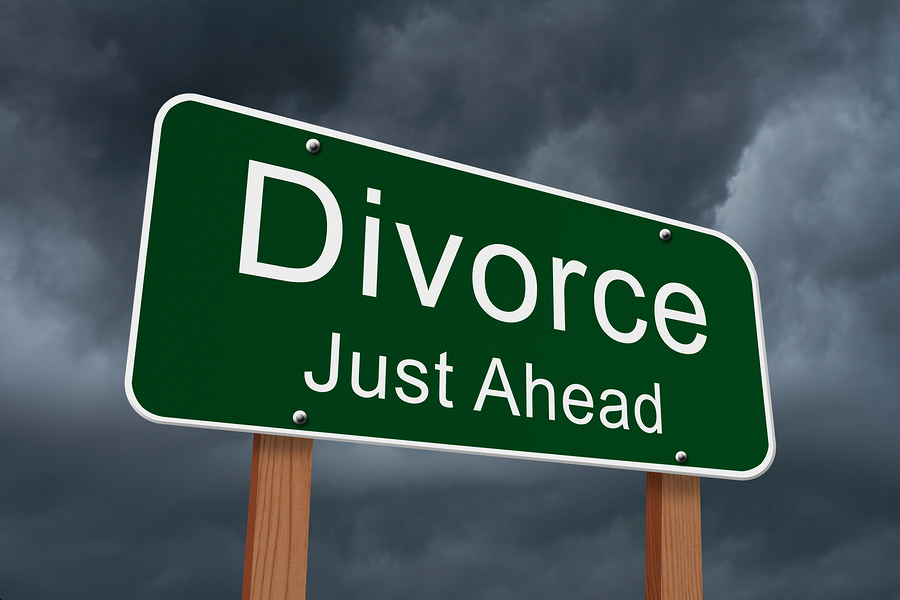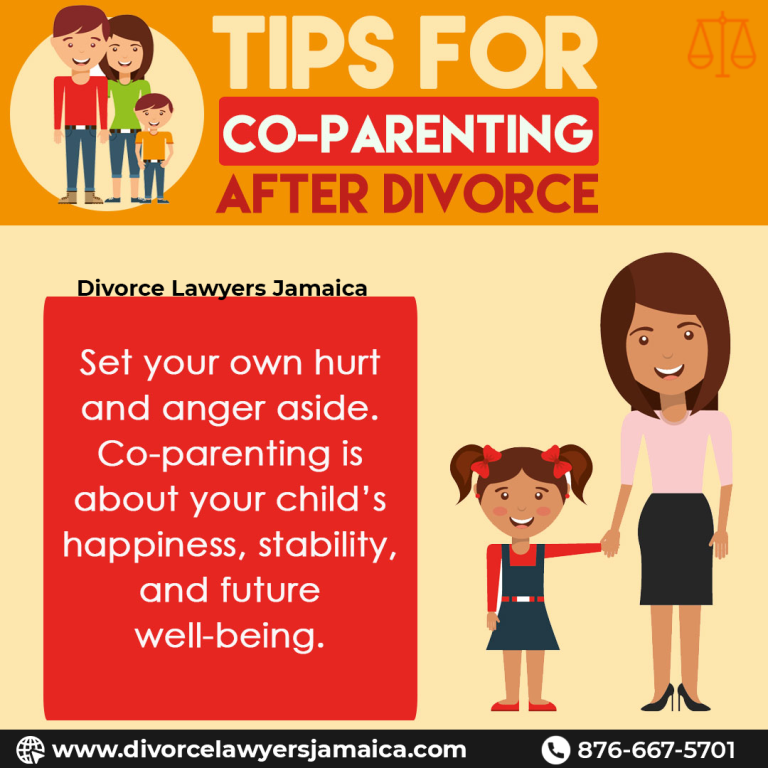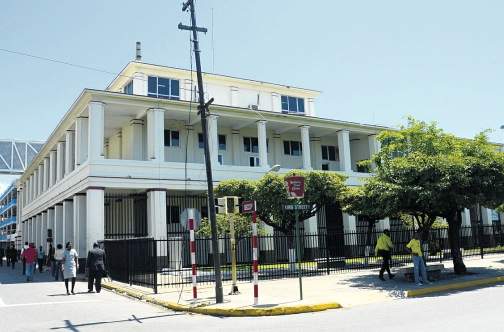What is the process to obtain a divorce in Jamaica?
Legal Separation
Divorce proceedings in our jurisdiction are governed by the Matrimonial Causes Act (The Act). Essentially, the dissolution of a marriage is a judicial act and so cannot lawfully be obtained by any other means otherwise than by a court hearing. Divorce proceedings in Jamaica are dealt with in the Supreme Court of Judicature located in Kingston Jamaica which is the only court of competent jurisdiction.
By virtue of section (5) of the Matrimonial Causes Act, there is only one ground required to show reason for the divorce and that is, that the marriage has broken down irretrievably. It follows that if the Jamaican Court is not satisfied that there is an irretrievable breakdown of the marital union and so there is a reasonable likelihood of the parties resuming the marital relationship then the divorce will not be granted.
Either party who believes that the union has broken down irretrievably and so there is no likely prospect of reconciliation may apply to obtain a decree for the dissolution of the marriage. The application is by way of petition and so the applicant is the petitioner and the other spouse, the respondent.
In establishing to the judge’s satisfaction that there is irretrievable break down of the marriage and a Decree Nisi is warranted, the petitioner must satisfy the chancery that they have separated and thereafter have lived separately and apart for a continuous period of not less than 12 months before the date of filing the divorce request. Even where the parties may continue to reside in the same house or rendered some household services to the other, the chancery may nevertheless find that the parties are separated and lived separately apart. It is the circumstances of the living arrangement that will be examined by the chancery in this regard to see if there is a separation in fact and law.
Need more information on legal separation? Then contact Divorce Lawyers Jamaica for a consultation today.
Complete form below
When you complete the form you will have the option to book a FREE 15 minutes consulatation
How to file for an annulment in Jamaica.
Do you need to file for a divorce? Our legal experts can help you with this process. Find out more by clicking here.

FAQs about Marriage & Divorce Case Settlements
How much does a divorce cost in Jamaica?
What is the easiest way to get a divorce in Jamaica?
How long does an uncontested divorce take in Jamaica?
How long after divorce can you remarry in Jamaica?
How do you dissolve a marriage in Jamaica?
What are good reasons to get divorced?
What is the minimum time to file divorce?
When divorce is the best option?
How long do you have to be separated to get a divorce in Jamaica?
Do I need a lawyer to get a divorce in Jamaica?
What are the steps for divorce in Jamaica?
Can I get a divorce in Jamaica without a lawyer?
How long is divorce process in Jamaica?
What is the fastest way to get a divorce in Jamaica?
What documents are required for divorce in Jamaica?
How do you dissolve a marriage in Jamaica?
Am I legally married if I got married in Jamaica?
What should I do first when my wife wants a divorce?
What if one partner doesn’t want divorce?
Can I divorce my husband if he doesn’t agree?
What is the best type of divorce?
How painful is divorce?
Can separation save a marriage?
Google Reviews/ Client Testimonials
Posted onTrustindex verifies that the original source of the review is Google. I was working with a lawyer who handled my case but didn't take the necessary steps needed to make my case proceed. This previous attorney was regarded as "a good lawyer” as long as the case was simple. My situation, however, proved to be more complicated than expected. The previous attorney was giving me the runaround and refusing to put in the extra effort to advance the case. I conducted a thorough search and came across Victoria A. Brown and associated. I called her and explained everything to her. She informed me after listening carefully that she could handle my issue. She explained the entire process to me, including what to anticipate. Despite the fact that it took longer to finish my complicated case she did it. Without a doubt, I give the law firm my highest recommendation. If they're capable of handling a case as complex as mine. They can handle a straightforward case with ease.Posted onTrustindex verifies that the original source of the review is Google. I had an amazing experience. Thank you for your empathy and patience during what could have been a challenging time.Posted onTrustindex verifies that the original source of the review is Google. My experience was awesome, a very pleasant customer service experience, they listen and did their job very efficiently. I would recommend any one to them.they made everything clear and the payments are very affordable. Thank you very much ????????????????Posted onTrustindex verifies that the original source of the review is Google. Victoria and her team are prompt, reliable and have made the process seamless for me. I highly recommend them for anyone both domestic and foreign.Posted onTrustindex verifies that the original source of the review is Google. After searching long and hard, I came across Victoria Brown Attorney-at-Law online. On my first call, she provided clear and very helpful information. She is always available for any queries we had. My experience so far has been fantastic. I simply can't fault them in any way. It has been very refreshing to receive such an incredible level of responsiveness and professionalism. I would highly recommend them.Posted onTrustindex verifies that the original source of the review is Google. Over the last 16 months, I have had the pleasure of working with Mrs. Brown and her team. I find everyone to be very informative, supportive, and accommodating. They show true dedication in dealing with my issue. On more than one occasions Mrs. Brown took the time to personally deliver documents to me. I see that as going over and above to satisfy a client. Thank you, and keep up the good work.Posted onTrustindex verifies that the original source of the review is Google. I met Victoria some years ago trying to find a Divorce Lawyer for my second divorce. My first was complicated and very expensive and for sure I had no intention of going that route again. Victoria was my saving grace, with pertinent advice and processing it was done! Matchless Victoria to the rescue always ready and prepared with her wise counsel. I would recommend her any day.Posted onTrustindex verifies that the original source of the review is Google. Just want to share my experiences with Victoria Brown and her team. I love how you always get a response promptly if you have any questions or concerns. My divorce went smoothly and I'm very happy with the service that was provided from this law office. I highly recommend Victoria Brown law office. I live in the USA so the communication was superb. Good job Victoria!Posted onTrustindex verifies that the original source of the review is Google. I found my experience professional, personal, friendly and easy. The entire team was comfortable to work it and paid keen attention to details. I felt like they had my best interest at heart and not the payments. I would recommend Victoria Brown as a divorce attorney to any and everyone. Loved my experience.Posted onTrustindex verifies that the original source of the review is Google. I had a great experience with this lawyer office in Jamaica. They communicated well and filed the papers in a timely manner. I would recommend this office. They are affordable and patient. Thanks again for all your help.Load more

Looking for a cheap divorce lawyer? Be careful of them!
Divorce in Jamaica costs does not have to be very expensive. Find out more about the cost for a divorce by clicking here.
Cheap divorce lawyers in Jamaica, Be careful of them!Did you know that cheap a divorce lawyer will give you results that you did not bargain for?
Distribution of family property.
The distribution of property during a divorce is governed by the laws of Jamaica. Generally, the court will attempt to divide the houses, lands and assets of the parties in a fair and equitable manner. The chancery may consider how long you have been married, the contributions of each party, and any other components deemed relevant to the division of the property. Speak with a Jamaica divorce lawyer today by contacting us.
Child Custody and Support
Where children and property are involved, the divorce process can include issues relating to spousal support, child support and custody, the distribution of physical assets such as house and land and the division of debt. Contact our law firm for legal counsel on the custody of children.

Practice Areas
Divorce Lawyers in Jamaica
Our expert divorce attorneys in Kingston have manged various divorce cases are here to help guide you through your divorce and all the elements that go with it, including childcare arrangements and financial settlements.
Spousal Support
When you divorce or dissolve your civil partnership, either partner might agree to pay the other either a lump sum or ongoing spousal maintenance payments. Contact our divorce lawyer in Jamaica today.
Child Support
When parents split up, it is common for the financial burden of the children’s day-to-day expenses to fall to the parent with whom the children live most of the time. Speak with a lawyer today by contacting our firm.
Property Division
When you divorce, you and your ex-partner need to agree on how to separate your finances. This includes deciding how you’re going to divide your pensions, houses and lands, savings and .investments. Contact our law practice today.
Family Law
Family law is made up of three main areas of work: matrimonial, finance, and child law. Our divorce lawyer acts on matters such as divorce and separation, financial settlements.
Female Divorce Lawyers
We are a team of female divorce attorneys serving Jamaica, West Indies. We understand that this is not easy, and legal decisions can seem like a daunting prospect. We have several years of experience in navigating the judicial system in Jamaica. Complete the form to contact us today.

I got married in Jamaica how do I get divorced?
Are you a citizen from another country that had got married in Jamaica and now you need information on getting a divorce?
Did you know that divorce affects the relationship between parents and their children? Read this article for tips on how to reconnect with your children after a divorce.
Divorce usually entails dissolving the bonds of matrimony between a married couple under the rule of law.
Other things to take into consideration when getting divorced are division of debt, parenting time, access to the children, parenting time, custody of the kids, spousal support (alimony) and distribution of property. Need more info? Contact us today to speak with our divorce attorneys in Jamaica
Divorce Attorney in Jamaica West Indies

Our Jamaican lawyers have several years of experience in navigating the court to file for divorce for local and international clients. Our experienced staff of attorneys and paralegals are well-versed in the legal complexities of Jamaican divorce laws and provide the highest quality legal advice and representation for those seeking to end of the matrimony.
Contested divorce
Contested divorces mean that individual issues are required to be heard by a judge at the Supreme Court of Jamaica at trial level. This is more expensive, and the parties will have to pay a lawyer for their time and preparation. In situations like this, the parties involved are not able to agree on issues for example, the division of marital assets. In such situations, thelitigation process takes longer to conclude, and this has been known to take anywhere from 1 year to 2 years. The judge controls the outcome of the case.
When marital assets include real estate, an independent valuation is essential—especially in contested divorces where the court decides.
JA Property Appraisers provides precise, certified valuations of homes and land across Jamaica.
Get the clarity you need on property values to support fair division and strengthen your case. Visit JA Property Appraisers today.
Alimony and the Jamaican Court
Alimony refers to the financial assistance and monetary support provided by one spouse to another after a marriage ends in divorce. Oftentimes, the receiving husband/wife must not be able to support themselves without the help of their ex-spouse. Therefore, alimony is a sum of money calculated and fixed by the judge to be paid to one of the parents usually as a contribution to the education and maintenance of the child.
Alimony may be based on a series of components, such as the length of the union, the age of the parties, degrees earned (if any) etc. The amount of the alimony can be calculated according to several elements related to the expenses and the conditions of resources of the divorced or separated parents, such as their credit, rent, the net monthly income of the husband/wife, taxation or specific expenses related to the children (health, education, medical etc). Payments may be paid in a lump sum, or in a series of monthly payments. Duration of alimony is often based on the length of the union, in other words, the longer the union, the longer the duration of alimony will be paid. The avg experience of our legal team is extensive, with many years of legal expertise between them.
Are you thinking of filing for a law divorce? Contact our law firm today and we will reach out to you about the details of your case as soon as possible.

This is the first important order you’ll encounter in your divorce proceedings. It confirms that the court does not see any reason why you cannot get divorced. This means that one of the reasons or ‘grounds’ for divorce has been established, and all the legal requirements to obtain a divorce have been met.
Looking for a divorce lawyer?
Contact us today for all your family law needs.
This is the final stage in divorce proceedings and the document that officially ends the marriage.
This certificate is a legal document that confirms your marriage has ended. Once the Decree Absolute is granted, you are free to marry again, if you wish.
It is a good idea to keep your certificate in a safe place. You may be required to show it to prove your marital status, for example, if you are changing your name on your mortgage, driving licence or bank account.
Family Lawers in Jamaica
Looking for a family law attorney in Jamaica West Indies? Then contact us today.

The COVID-19 pandemic presented many couples with an unprecedented challenge. Beyond the often-lethal impact of the disease itself, many couples also experienced job loss (particularly women), immense stress as a result of parenting kids through remote learning, and a correspondingly diminished sex drive. Any of these alone might deepen an already cracked marriage, but it feels as though there’s also something deeper and more philosophical, happening in the divorces taking place this year. To read more about the effects of covid on divorces, click here.
Jamaica lawyers are often consulted to provide legal advice on a variety of subjects. Contact our law practice today.
In the case of Kimber v Kimber (2000), it highlighted the factors that would determine if you are in a common-law relationship. They are as follows:
- Living together in the same household
- A sharing of daily life
- Stability and a degree of permanence in the relationship
- Shared Finances
- A sexual relationship
- Children
- Common Intention and motivation
After identifying that you are in a common law relationship, you may now be wondering “what would I be entitled to should I separate from my spouse?” or you may already be separated and thinking “I just wasted the best 10 years of my life for nothing!” Contact our law practice to speak with a lawyer today.
Frequently Asked Questions
How much does a divorce cost Jamaica?
The cost for divorce in Jamaica ranges from $140,000 to $150,000. This depends on where the client is domiciled. The divorce process can take anywhere from 7 to 9 months to complete. The competence of your divorce attorney and the complexity of your case will influence the cost for your divorce and the length of time it will take.
What is the easiest way to get a divorce in Jamaica?
The easiest type is called an uncontested divorce and takes the least amount of time. This relatively fast process happens because all of the major issues have been agreed upon by you and your husband/wife.
How long does an uncontested divorce take in Jamaica?
An uncontested divorce can be finalized in approximately 9 to 12 months. There is less acrimony involved with uncontested cases, which therefore allows the proceedings to move on due to the fact that there is less acrimony.
How long after divorce can you remarry in Jamaica?
Once the Supreme Court enters the judgment, the divorce is final. However, the marriage is not formally dissolved and the spouses cannot remarry until the end of the state’s waiting period.
How do you dissolve a marriage in Jamaica?
Either party (at any time after the ceremony) can initiate an application for an annulment of marriage at the Supreme Court of Jamaica by the filing of a Petition for Nullity of Marriage pursuant to Rule 76.4 (3) of the Civil Procedure Rules, 2002.
What are good reasons to get divorced?
There are numerous grounds for divorce, but only 12 are recognised by law. C heating or adultery. Bigamy. Desertion. Insanity at the moment of marriage. the marriage of close relatives. impotence at the time of marriage. Using coercion or fraud to get married. Conviction and/or imprisonment for a crime.
What is the minimum time to file divorce?
One year is the minimum statutory requirement for filling a divorce case in the court.
When divorce is the best option?
Your partner has a history of abusing you. Your partner is abusing drugs or alcohol and won’t seek assistance. Your partner has been unfaithful on many occasions and doesn’t appear serious about wanting to stop.
How long do you have to be separated to get a divorce in Jamaica?
Before requesting a divorce, you must have been married for at least two years and separated for at least a year, under that Act. Prior to the application date, that one-year separation must have been continuous. Separation, however, is not just a problem for separated spouses.
Do I need a lawyer to get a divorce in Jamaica?
When deciding whether to dissolve their marital union, the spouses may require the counsel and aid of a lawyer. Our attorneys frequently provide guidance and outlines to navigate the procedure.
What are the steps for divorce in Jamaica?
Divorce goes through four stages: (1) commencement, or submitting a petition for divorce, (2) service, (3) application for a decree nisi, and (4) application for an absolute decree.
How long is divorce process in Jamaica?
The petitioner may next file the proper paperwork for the first Divorce Order. A hearing before the judge is not necessary. However, this process takes, on average, nine to twelve months to complete.
What is the fastest way to get a divorce in Jamaica?
It is possible to divorce quickly. An uncontested divorce is the most straightforward and speediest kind of divorce. Because you and your husband/wife have resolved all of the major issues, that will enable the divorce to be finalised really quickly.
What documents are required for divorce in Jamaica?
The following documents are submitted with the application for the annulment of the marriage: a) notice to dispense with hearing; b) petitioner’s affidavit in support of the application for dissolution of marriage; c) affidavit of search; and d) decree nisi.
How do you dissolve a marriage in Jamaica?
According to Rule 76.4 (3) of the Civil Procedure Rules, 2002, either party to the may begin an application for an annulment at the Supreme Court at any time following the ceremony by submitting a Petition for Nullity of Marriage.
Am I legally married if I got married in Jamaica?
The United States recognises marriages that occur in accordance with Jamaican law as being legitimate unions. Before the ceremony can take place, Jamaican residents getting married must be present for at least 24 hours. Blood tests are not necessary.
What should I do first when my wife wants a divorce?
Things to do if your wife wants a divorce but you want to patch things up with her. Think about therapy. Counselling has been proven to help. Pay attention to her, maintain your composure, keep your cool, be respectful, be self-assured, and keep busy.
What if one partner doesn’t want divorce?
Your only choice for dissolving your marriage if your husband/wife won’t cooperate is to file for divorce in court. Due to the absence of your husband/wife, mediation will be ineffective. Divorce by collaboration won’t succeed. Your divorce will need to be litigated. Be sure to read our article on co-parenting tips after divorce.
Can I divorce my husband if he doesn’t agree?
Making the decision to file for divorce can be challenging, particularly if you are unsure that your husband will sign documents. Importantly, however, you don’t require your husband’s approval to obtain a divorce. If your husband refuses, it can take a while, but they won’t be able to stop you forever.
What is the best type of divorce?
An uncontested divorce is when both parties consent to the dissolution of the marriage and to all aspects of the divorce, such as the distribution of property and the care of any children. Due to the lack of a trial and drawn-out negotiations, this type of divorce may be speedier and simpler than other types.
How painful is divorce?
Divorce is a stressful, drastically altering life experience. It’s crucial for clients to take care of themselves while going through this difficult emotional time or going through a significant shift in your life. You may become psychologically and physically vulnerable as a result of the stress and disruption caused by the breakup.
Can separation save a marriage?
If done properly and with clear agreements from the beginning, a separation can strengthen the relationship. Getting outside assistance and keeping frequent communication are key components of a successful separation that improves a partnership.
Set Clear and Reasonable Expectations.
Ground rules are a must to maintain a sense of trust between the parties. If one person expects to communicate every day but the other doesn’t, this could cause hurt feelings. Knowing what to expect avoids this type of situation.
At Divorce Lawyers Jamaica, our firm overview touches on our approach to divorce proceedings and provides an understanding of the divorce process including filing and the necessary steps to reach a settlement. Contact us today.
Set Clear and Reasonable Expectations.
Ground rules are a must to maintain a sense of trust between the parties. If one person expects to communicate every day but the other doesn’t, this could cause hurt feelings. Knowing what to expect avoids this type of situation.
At Divorce Lawyers Jamaica, our firm overview touches on our approach to divorce proceedings and provides an understanding of the divorce process including filing and the necessary steps to reach a settlement. Contact us today.
